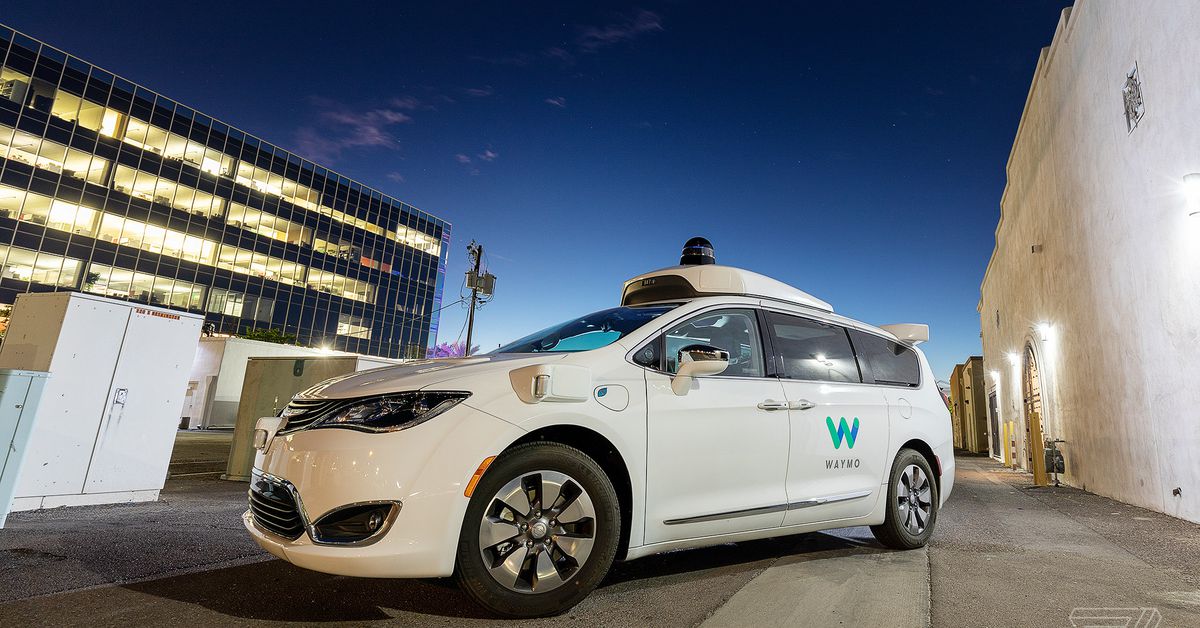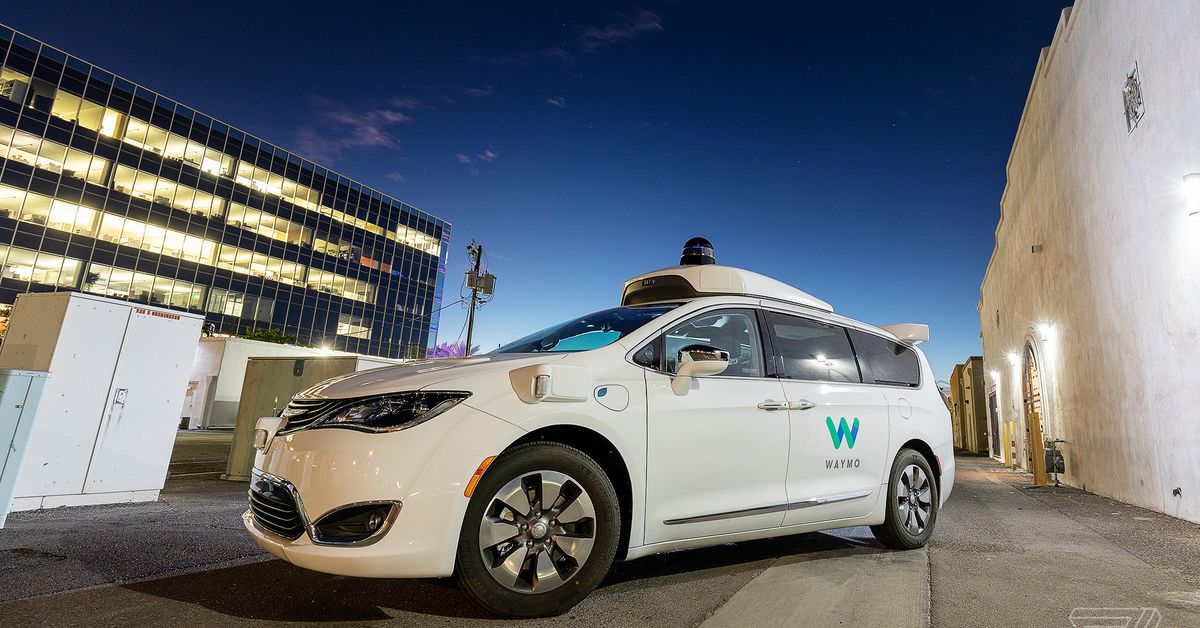
Waymo is planning to resume testing its autonomous vehicles in Arizona on May 11th, nearly two months after pausing its robotaxi service as a result of the COVID-19 pandemic. But some of the company’s backup drivers are worried that Waymo may be rushing back into service too quickly.
In a blog post, the company said it was taking a “tiered approach” to returning its vehicles to the road. Waymo says it has redesigned its vehicle depots in Arizona to conform with social distancing guidelines, including limiting the number of people that will be allowed inside at any given time. Employees will receive personal protective gear, like face masks and gloves. And the facilities and the company’s fleet of autonomous vehicles will be cleaned multiple times a day.
In addition, employees will receive temperature checks when arriving for work each day. And employees who are at high risk for COVID-19, or who have child care issues, can opt to work from home. Each vehicle will only feature one backup driver during testing to comply with social distancing guidelines.
But the company won’t be fully operational. Waymo’s ride-hailing service, Waymo One, will remain on pause. And Waymo says it won’t resume testing in other cities like San Francisco, Detroit, and Los Angeles until the company is convinced it’s safe.
“We’re taking a thoughtful and measured approach towards bringing our driving operations back on the road”
“We’re taking a thoughtful and measured approach towards bringing our driving operations back on the road,” the company said in a blog post.
But the company’s operations team, which is largely comprised of employees who work for Waymo’s third-party contractor — a French transit company called Transdev North America — is not all convinced of the company’s commitment to safety.
“The measures they’re taking seem above and beyond on paper,” said one Arizona-based backup driver. “But at the same time, Arizona hasn’t seen 14 days of new case decline yet either.”
There have been almost 10,000 cases of COVID-19 in Arizona, and 450 deaths, according to AZ Central. The state’s Republican Governor Doug Ducey announced recently the phased reopening of the state’s businesses, including salons, restaurants, and coffee shops.
One member of Waymo’s operations team, who is based at the company’s Mountain View, California headquarters, expressed concern that Waymo will try to resume testing too early. Most the test rides in California are done with two employees in the vehicle. Unlike Arizona, very few of the company’s California ops team is trained to ride in the company’s autonomous vehicles by themselves.
“But at the same time, Arizona hasn’t seen 14 days of new case decline yet either”
“It feels like they’re using [Arizona] as a control group to decide if they can push us back in,” said the driver. “Arizona has always gotten test policies and whatnot first, but this seems like way too large of a risk since the number of deaths and cases is still increasing.” (A Waymo spokesperson noted that driving operations first resumed at the company’s closed testing site in Central California two weeks ago.)
As The Verge has previously reported, tension is high between Waymo and its operation staff since the company signed a contract with Transdev last year. Vacation time was cut, health insurance didn’t improve, and issues of workplace safety went unaddressed, according to a half-dozen workers who spoke to The Verge for a story last month. And drivers said they were increasingly nervous about picking up passengers amid the growing COVID-19 pandemic, and that the outbreak is exposing divisions between drivers and full-time employees at the Google spinoff.
But Waymo has continued to pay its workers despite two months of downtime, while other self-driving companies have cut their operations staff. The Arizona-based driver said the company appears to be listening to employee concerns about rushing too quickly back into testing and ride-hailing.
“[Waymo One] was a huge sticking point with drivers at the beginning of this,” the driver said, “so hopefully they got the message and don’t even consider it until we are at whatever our new normal is.”
